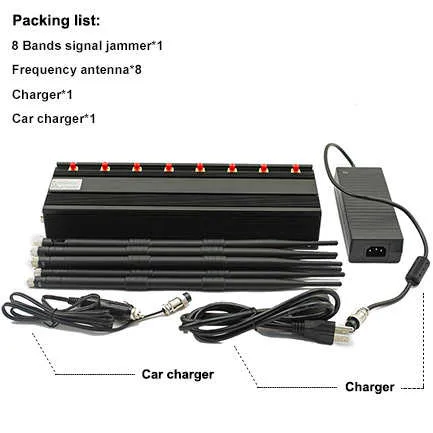In order to reduce use of mobile phone please use phone jammer to your advantage
Don let phone notifications stress you out
With all those smartphone notifications, it's no wonder you lose focus on whatever you're trying to do.
Your phone doesn't even need to ping to distract you. It's well-documented that just the presence of your phone, silent or not, is enough to distract you.
what happens? More importantly, how can you refocus your attention without missing out on what’s important?
Is it really such a big deal?
While estimates vary, the average person checks their phone about 85 times a day, about once every 15 minutes.
In other words, every 15 minutes or so, your attention may drift away from what you're doing. The problem is, it can take a few minutes to fully regain your focus after being interrupted by your phone.
If you're watching TV, getting distracted (and refocused) is no big deal. But if you're driving, trying to study, work, or spend time with loved ones, it can cause some pretty serious problems.
Cellphone Jammer, a DIY endeavor for the darker crowd. I'm pretty sure we've all considered having one at some point: whether the obnoxiously loud woman next to you is announcing private bedroom stories to a crowd on the subway, or your kids are grounded from using the phone (and consequently snagged a hidden prepaid phone), sometimes having a cell phone signal jammer comes in handy.

What do all these disruptions mean for cognition and well-being?
There is growing evidence that push notifications are associated with reduced productivity, poor concentration, and distraction at work and school.
But is there evidence that our brains are working harder to handle the frequent switches of attention?
A study of people's brainwaves found that those who described themselves as heavy smartphone users were more sensitive to push notifications than those who described themselves as light users.
Heavy users were significantly worse than light users at regaining focus on the task after hearing a push notification. Although push notifications interrupted the concentration of both groups, heavy users took longer to refocus.
Frequent interruptions from your phone can also make you feel stressed out by the need to respond. Frequent smartphone interruptions have also been linked to increased FOMO (fear of missing out).
If you get distracted by your phone after responding to a notification, any subsequent delays in getting back to the task can also make you feel guilty or frustrated.
There is certainly evidence that the longer you use your phone in an unproductive way, the lower your rating of your own happiness is.
Mr. Larson of the cellular industry group said that while the industry objected to imposed controls on cellphone ringing, it did not oppose measures left to the customers' discretion. ''They are certainly less odious than gps blocker,'' he said.

How can I stop?
We know that turning your phone to silent won't magically solve the problem, especially if you're already checking it frequently.
What is needed is behavior change, but it is difficult. It may take several attempts to see lasting changes. If you've ever tried to quit smoking, lose weight, or start an exercise program, you know what I mean.
An company Perfectjammer, makes a detector called Wireless Signal Detector Prevents Monitoring, a hand-held device that is used to monitor and detect cellular communication activity in a given area. (It is offered at www.perfectjammer.com for $100-$380.) Other smaller detector models include the RF Signal Detector from TG-007B, about the size of a beeper, which costs less than $100. As with wifi jammers, the larger the detector, the greater its range.
Start by turning off all unnecessary notifications. If you want to check your phone less often, here are some things you can try:
In that moment, interrupt the urge to check and actively decide whether it will work in your favor. For example, when you turn to reach for your phone, stop and ask yourself if this action serves a purpose other than to distract.
